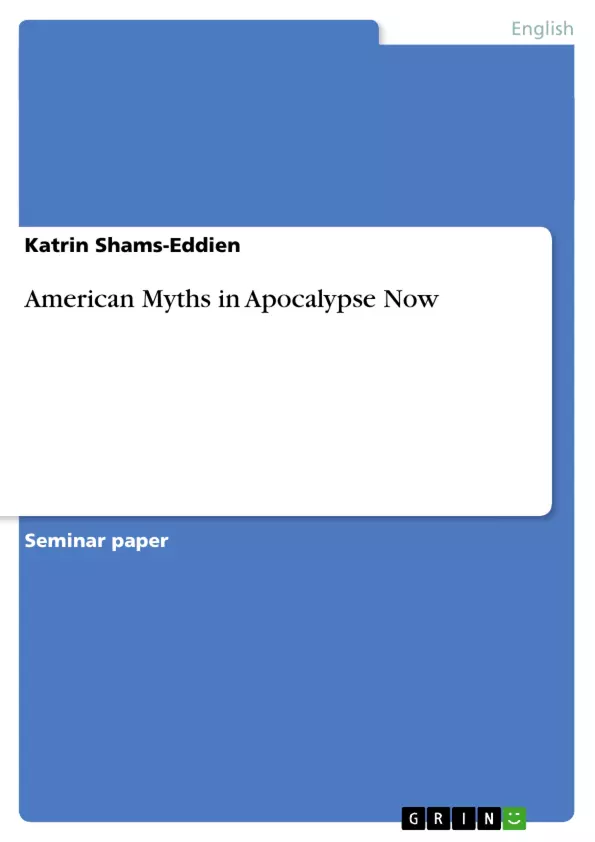There are many myths in the American culture and such as the success-myth, made America what it is today. The success-myth and self-reliance took the place of puritan virtues like unselfishness, virtuousness and modesty.
The forerunner of the enlightenment was Benjamin Franklin, who replaced those puritan virtues by self-realization, reason and individuality. He himself was striving for moral perfection while his definition of moral was quite different from the previous one.
His plan of gaining moral perfection concentrated on financial success and consisted of how you could be on top of everything by being always disciplined and success orientated. He believed man would be successful if he stepped out of the shadow of conformity and was brave enough to believe in his individuality and willing to work hard for his aims. For him financial success was the key to gain perfect happiness.
The principle of self-reliance is also part of the great enlightenment and functions as an ally of B. Franklin`s success-myth.
Emerson was the central transcendentalist whose principle of self-reliance replaced the traditional religion. He believed that conformity restricts liberty and culture and declares himself in favor of non-conformism on the principles of truth and integrity. He talks of a divine connection between man and nature which he calls intuition. He reinforces the transition of the individual and sees it as an unavoidable necessity to overcome obstacles and to bring sacrifices when you follow your intuition. Because not following it would mean moral suicide and betrayal of yourself. He makes clear that ones place in life is not ruled by society or fate but by yourself. Rely exceptionally on yourself and you will succeed. He also makes clear you have to follow your own interests instead of going conform with society which will lead you to success and independence. The only thing ruling you should be reason and ambition. You will also gain freedom because possession will lead you to it.
Then there is the frontier-myth. Americans saw themselves as pioneers bringing civilization to wilderness. They saw themselves as missionaries bringing civilization to a`cultureless`race and while doing so they were simply overrunning strange cultures.
Their conviction of being the superior race made them blind to different cultures. [...]
Inhaltsverzeichnis (Table of Contents)
- Introduction
- American Dream - American Nightmare:
- American myths in Apocalypse Now
Zielsetzung und Themenschwerpunkte (Objectives and Key Themes)
This text examines the influence of American myths on the country's historical development, focusing on the concepts of self-reliance, the frontier myth, and Manifest Destiny. It explores the impact of these myths on the treatment of Native Americans, African Americans, and the country's role in Vietnam.
- The role of American myths in shaping the nation's identity and culture.
- The relationship between American myths and the exploitation of other cultures.
- The impact of the frontier myth and Manifest Destiny on Native Americans.
- The persistence of racism and prejudice in American society.
- The Vietnam War as a manifestation of American exceptionalism and the myth of a "city upon a hill."
Zusammenfassung der Kapitel (Chapter Summaries)
- Introduction: This section introduces the concept of American myths, specifically the success myth, self-reliance, and the frontier myth. It examines how these myths replaced Puritan virtues and shaped the American identity. The author argues that these myths, while contributing to American economic success, also resulted in the exploitation of Native Americans and the perpetuation of racism.
- American Dream - American Nightmare: This section explores the American Dream and its relationship to American nightmares. It discusses the Vietnam War as an example of the American Dream gone wrong, arguing that the war was a result of the nation's blind faith in its own exceptionalism. The author argues that the war is a reminder of the dangers of blindly following myths and the need for a more nuanced understanding of American history.
Schlüsselwörter (Keywords)
The primary themes and concepts of this text include American myths, success myth, self-reliance, frontier myth, Manifest Destiny, Native Americans, African Americans, racism, prejudice, Vietnam War, American exceptionalism, and the "city upon a hill." These terms and concepts are crucial for understanding the development of American identity, the consequences of American foreign policy, and the enduring challenges faced by the nation.
Frequently Asked Questions
What are the core American myths discussed in the context of Apocalypse Now?
The text focuses on the success myth, the principle of self-reliance, the frontier myth, and the concept of Manifest Destiny.
How did Benjamin Franklin influence the American success myth?
Franklin replaced Puritan virtues with reason and self-realization, viewing financial success as a key to perfect happiness and moral perfection.
What is the role of self-reliance in American identity?
Popularized by Emerson, self-reliance emphasizes non-conformism and intuition, suggesting that an individual's place in life is ruled by themselves rather than society.
How does the frontier myth relate to American exceptionalism?
It portrays Americans as pioneers bringing civilization to "wilderness," often leading to the overrunning of other cultures under the belief of being a superior race.
How is the Vietnam War portrayed as an "American Nightmare"?
The war is seen as a manifestation of blind faith in myths like being a "city upon a hill," resulting in the exploitation of other nations and a clash with reality.
- Quote paper
- Katrin Shams-Eddien (Author), 2001, American Myths in Apocalypse Now, Munich, GRIN Verlag, https://www.grin.com/document/11100



